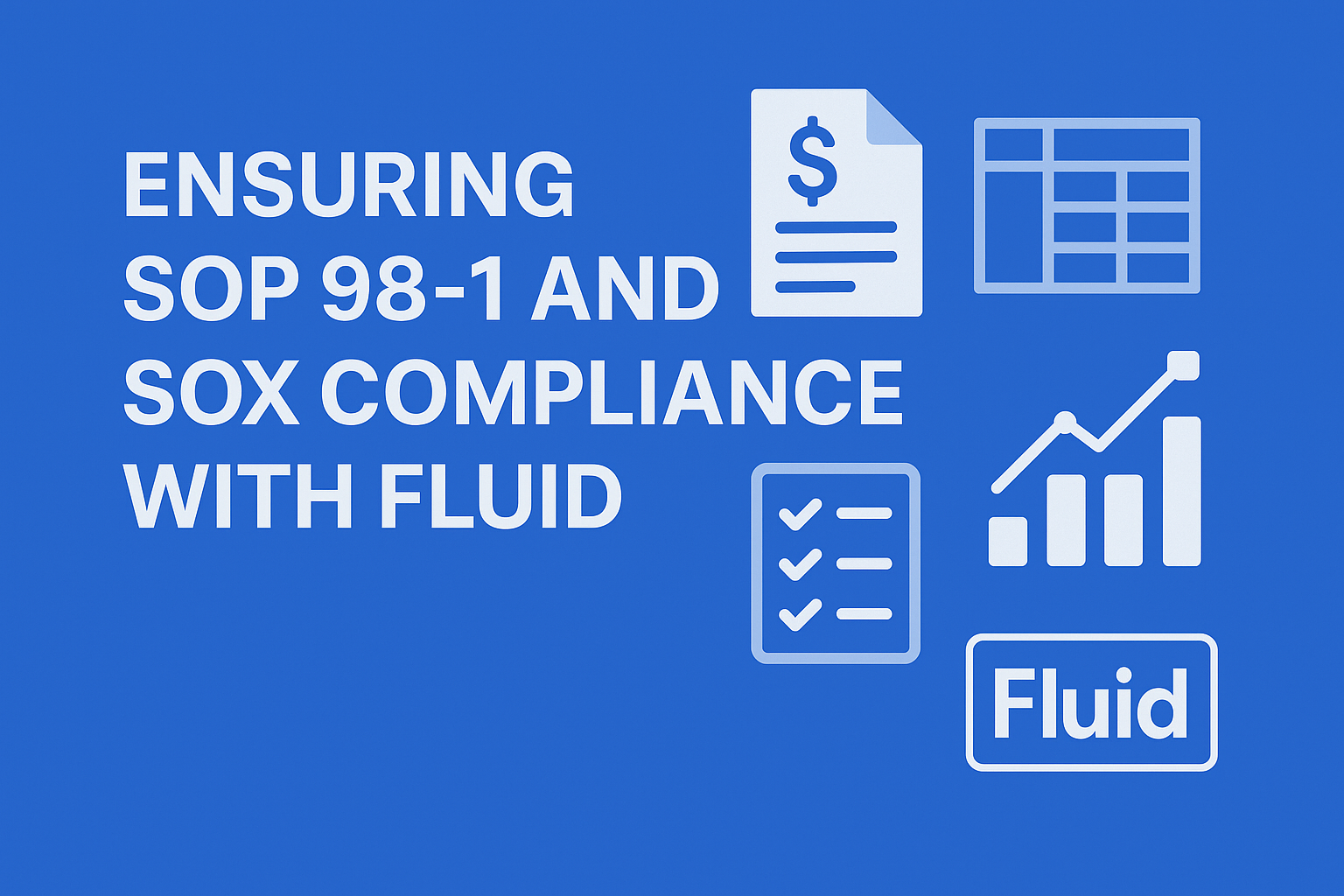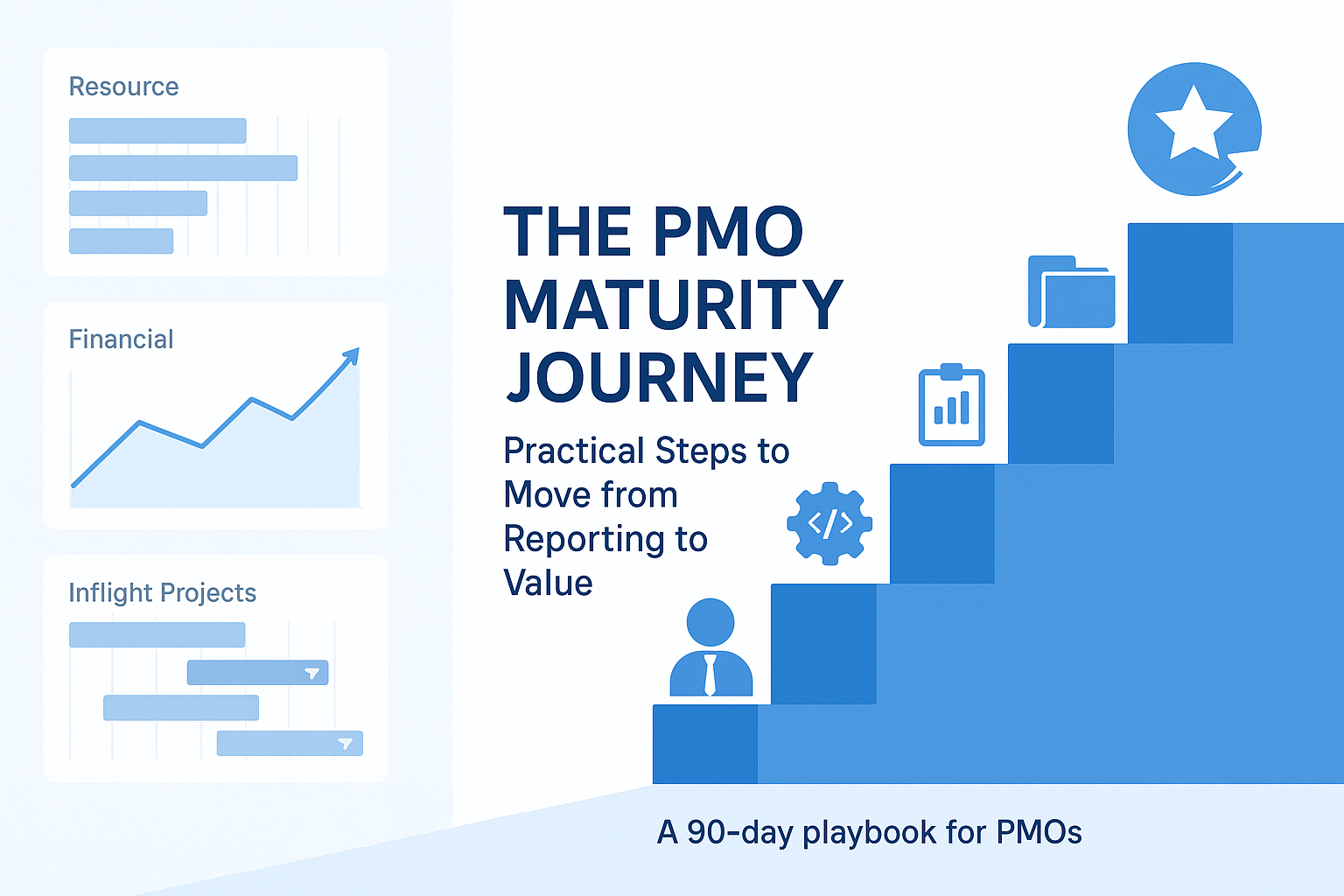What are the 5 PMO frameworks?

Project Management Offices (PMOs) are key factors for the successful execution and management of projects. PMOs are the engine room for an organisation, delivering change and value. PMOs develop specific strategies, goals and outcomes, as well as the processes, to effectively deliver value to the business. The new opportunities they bring to the table are designed to lead a shift in organisational priorities, which are critical for getting ahead in the project economy.
PMOs are organisational structures designed to standardise project management practices, facilitate resource sharing, and enhance overall project efficiency. With their important role aligning projects with strategic objectives, their significance cannot be overstated! PMOs have evolved along with the increasing complexity of projects, which means there is no one size fits all. This has resulted in different PMO frameworks.
Why are PMO frameworks important?
PMO frameworks play a critical role in ensuring successful project execution within organisations through a structured approach. These frameworks help you to achieve your project goals efficiently and effectively.
Consistency and standardisation:
PMO frameworks establish standardised processes, templates, and guidelines that promote consistency across projects. If each project team had its own set of processes and templates, this would result in inconsistencies and inefficiencies. Consistency and standardisation ensures that everyone in the organisation follows the same best practices. Not only does this streamline the project management process but also enables easier communication, knowledge sharing, and resource allocation. Ultimately, this leads to improved project outcomes and higher overall success rates.
Resource allocation:
PMO frameworks help optimise resource management by providing a clear understanding of resource availability and requirements. This enables you to gain better decision-making when assigning resources to projects, ensuring optimal utilisation and avoiding bottlenecks.
Risk management:
PMO frameworks incorporate risk management practices, allowing you to identify, assess, and mitigate risks throughout the project lifecycle. By proactively addressing risks, projects can avoid potential pitfalls and maintain successful delivery.
Stakeholder communication:
Effective communication in PMOs is crucial for project success, and PMO frameworks facilitate transparent and consistent communication when managing stakeholders. These frameworks provide guidelines for reporting, escalation procedures, and stakeholder engagement, ensuring that project information is shared efficiently and stakeholders are kept informed.
How were the 5 PMO frameworks created?
The 5 PMO frameworks were conceptualised and established by the well-known Project Management Institute (PMI). The PMI found there was no standard explanation of what a PMO was or what it does across organisations. These frameworks provide a solid starting point to comprehend the roles and responsibilities of a PMO within an organisation, and how they can differ based on the framework utilised. The PMI aims to foster a deeper understanding of the PMO's significance and its impact on successful project management practices.
With their comprehensive approach, the PMI lay out an understanding of the fundamental aspects of a PMO. Essential to the creation of these frameworks was the input from numerous PMO professionals. These pros each brought their unique perspectives based on how PMOs are utilised in their respective organisations and enrich the work with a diverse focus. This collaborative effort resulted in the 5 PMO frameworks established by the PMI, which we’ll explore in more detail:
The 5 PMO frameworks
Organisational Unit PMO/Business Unit PMO/Divisional PMO/Departmental PMO
The Organisational Unit PMO covers a wide array of project-related services to support specific business units or divisions within an organisation. These services include portfolio management, governance, operational project support, and human resources utilisation, among others.
The primary objective of the Organisational Unit PMO is to align its services with the strategic goals of the business. By providing services such as the ones we mentioned above, the PMO contributes significantly to the overall success of the organisational Unit.
The Organisational Unit PMO also plays a pivotal role in organisational governance by providing important information to other PMO entities. It also assumes the responsibility for consolidated reporting of projects, programs, and portfolios within its field.
With the comprehensive range of services and unwavering focus on strategic alignment, the Organisational Unit PMO ensures efficient project management and supports the attainment of business unit objectives.
Project-Specific PMO/Project Office/Program Office
The Project Office is a temporary organisation established to provide comprehensive support to a specific project or program. Its main goal is to ensure the successful delivery of the project or program by offering a wide range of project-related services. These services cover various aspects, such as efficient data management, effective coordination of governance and reporting, and seamless execution of administrative activities to support the project or program team.
The project office plays a vital role in collaborating with other PMO entities to meet organisational governance requirements. It also contributes to the creation of project or program actions and facilitates knowledge management activities. Probably most important of all is that the project office operates throughout the lifespan of the project or program it supports. This ensures its continuous presence and active engagement throughout the entirety of the project lifecycle for success.
Project Support/Services/Controls Office or PMO
The Project Support Office plays a crucial role in facilitating the management of project, program, or portfolio work across the organisation. It provides a range of enabling processes that are tailored to the specific needs of each initiative. By leveraging the established governance, processes, practices, and tools of the organisation, the Project Support Office ensures seamless and efficient delivery of projects, programs, or portfolios within its domain.
The Project Support Office goes way beyond administrative support. It actively contributes to the development of specialised tools and practices that are designed to enhance the success of individual project efforts. This proactive approach enables the office to address specific project requirements effectively.
On top of the operational responsibilities, the Project Support Office also understands the importance of professional development. It supports mentoring, training, and certification activities for project managers within its area of responsibility. This comprehensive support ensures that project managers are equipped with the necessary skills and knowledge to excel in their roles.
Overall, the Project Support Office serves as a central hub for project, program, and portfolio management, providing an organised and integrated approach that maximises organisational success.
Enterprise/Organisation-wide/Strategic/Corporate/Portfolio/Global PMO
The highest-level Project Management Office (PMO) in organisations that plays a crucial role. It’s primarily responsible for ensuring that project and program work aligns with the overall corporate strategy. Arguably, this is something that all PMOs should do but this framework does it in more depth. The Enterprise PMO is responsible for establishing and maintaining effective governance practices across all enterprise projects, programs, and portfolios. This includes performing portfolio management functions to ensure that strategies are aligned, and benefits are realised.
The Enterprise PMO may also be involved in supporting strategy development and strategic planning at the enterprise level. It may facilitate governance processes, coordinating the alignment of initiatives with the corporate strategy. In some cases, the Enterprise PMO may have direct responsibility for or influence over other PMOs.
To effectively carry out its responsibilities, the Enterprise PMO must manage multiple stakeholders and ensure continuous communication. By doing so, it helps drive the organisation towards strategic objectives while maintaining alignment with corporate goals.
Centre of Excellence/Centre of Competency
The Centre of Excellence plays a key role in supporting the execution of project work within the organisation. By equipping project managers with methodologies, standards, and tools, it enables them to deliver projects more effectively. This, in turn, enhances the overall capability of the organisation by implementing and promoting good practices.
The Centre of Excellence serves, as the name suggests, a central point of contact for project managers. It provides them with training, mentoring, and capability development opportunities, empowering them to excel in their roles. The Centre of Excellence facilitates knowledge management through the capture and distribution of valuable information, fostering continuous improvement and innovation within the organisation.
By establishing a strong foundation of methodologies, standards, and tools, and by providing ongoing support and resources to project managers, the Centre of Excellence ensures that project work is executed with excellence, leading to successful project outcomes and organisational growth.
How does Fluid support PMO frameworks?
Project Portfolio Management (PPM) software is an essential resource that facilitates and enhances the effectiveness of various PMO frameworks. Fluid provides organisations with a centralised, all-in-one platform to plan, prioritise, execute, and monitor multiple projects simultaneously. Fluid allows you to utilise your resources effectively, align them with strategic goals and deliver strategic value faster. With Fluid, organisations can efficiently manage their project portfolios, make informed decisions, and drive successful project outcomes.
Let's break down how Fluid can assist each of the five PMO frameworks that the PMI identified:
- Organisational Unit PMO/Business Unit PMO/Divisional PMO/Departmental PMO:
- Resource allocation: Fluid lets you effectively allocate resources by providing visibility into availability, skills, and workload.
- Portfolio management: Fluid enables the management of project portfolios, ensuring alignment with your business unit strategies and goals.
- Project-Specific PMO/Project Office/Program Office:
- Project planning: Fluid assists in detailed project planning, scheduling, and coordination, ensuring specific project goals and timelines are met.
- Collaboration: Fluid facilitates collaboration among project teams by providing a centralised platform for communication and document sharing.
- Project Support/Services/Controls Office or PMO:
- Process management: Fluid supports the establishment and management of standardised project management processes and controls.
- Continuous improvement: Fluid allows for ongoing evaluation and improvement of your project management practices, ensuring efficiency and effectiveness.
- Enterprise/Organisation-wide/Strategic/Corporate/Portfolio/Global PMO:
- Strategic alignment: Fluid helps align projects with your organisation's strategic goals, ensuring that the portfolio contributes to overall objectives.
- Governance: Fluid facilitates governance by providing standardised processes, workflows, and visibility into project performance at an enterprise level including project templates and standardised reporting.
- Centre of Excellence/Centre of Competency:
- Knowledge management: Fluid aids in defining and managing knowledge management policies, fostering a culture of best practices and continuous learning.
- Standardisation: Fluid supports the establishment of standardised methodologies and tools to enhance the capabilities of project managers.
Aside from these framework-specific benefits, Fluid contributes to PMO success in several overarching ways too:
- Data visibility and reporting: Fluid provides real-time data visibility, enabling PMOs to generate comprehensive reports on project status, resource utilisation, and portfolio performance.
- Collaboration and communication: Fluid offers collaboration features, including document sharing, communication channels, and feedback mechanisms, promoting teamwork and effective communication.
- Risk management: Fluid helps identify, assess, and manage project risks, ensuring potential issues are addressed proactively.
- Strategic decision-making: By consolidating project data and performance metrics, Fluid supports informed decision-making at both the project and portfolio levels.
- Efficiency and productivity: Automation features within Fluid streamline routine tasks, reducing administrative overhead and allowing teams to focus on core project activities.
Fluid acts as a central hub for project and portfolio management, providing the tools and functionalities necessary to align with and enhance the diverse requirements of different PMO frameworks.
See how Fluid enables your business to deliver the right strategic change













